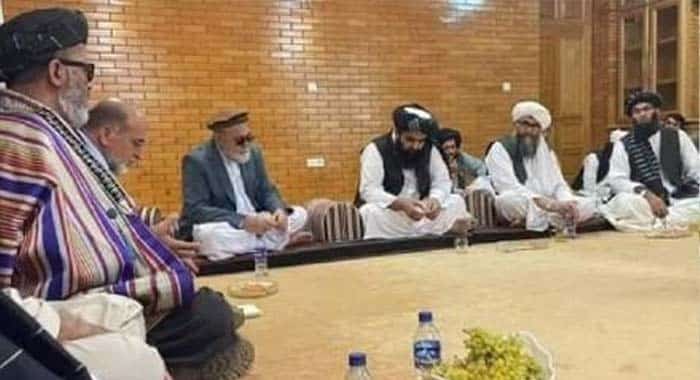Representatives of the Taliban and supporters of Ahmad Massoud, leader of the National Resistance Front (NRF), held their first formal meeting on Wednesday in Parwan province in a bid to explore alternatives to armed confrontation, local sources confirmed. The talks, held in the provincial capital, brought together a 12-member delegation of the resistance front led by former Mujahideen commander Almas Zahid and a six-member Taliban team headed by Mohammad Mohsin Hashimi, the deputy chief of Taliban intelligence. The meeting lasted for nearly three hours, after which both sides returned to consult their leadership before further negotiations.
Mohammad Alam Ezedyar, a representative of the resistance front, wrote on his Facebook page that the two sides had agreed to refrain from attacking each other until the second round of talks is convened. “After three hours of discussion, it was decided that both delegations will share the message with their leadership and resume the negotiations to reach a durable peace in the country,” he stated.
A member of the Taliban delegation, however, said that disagreements emerged over the agenda. According to Anamullah Samangani, a member of the Taliban’s cultural commission, the Taliban side was primarily focused on discussing Panjshir, while Massoud’s supporters pushed for dialogue on the broader structure of a future political system. “Since there were big differences between the two sides’ demands, both sides decided to take the messages to their leaders,” Samangani noted.
Both camps acknowledged that the negotiations carried weight, particularly after weeks of threatening to resort to force. “The discussions will bear results in the coming days. If the discussions have no results and they use another option (military), we will do the same,” warned Noorullah Noori, a member of the Taliban’s political office. A resistance front representative, Hamid Saifi, meanwhile confirmed that military preparations were ongoing despite the temporary pause in hostilities.
The meeting comes amid growing international pressure on the Taliban to deliver on their repeated promises of forming an “inclusive government.” However, the term remains undefined, and critics argue that the Taliban’s current structure remains exclusive and dominated by their ranks.
Ahmad Massoud, in a recent interview with the BBC, reiterated that unless a truly representative government is established, Afghanistan risks deeper political and economic isolation. “We are negotiating with the Taliban. So far, several countries like Canada have said they will not recognize an exclusive government. If that happens, the people will continue to suffer,” he warned.
Observers noted that while the Parwan talks mark the first direct engagement between the Taliban and the NRF, significant hurdles remain given the vast differences in their visions for Afghanistan’s future governance. Analysts said the coming rounds of negotiations will be crucial in determining whether the fragile pause in hostilities can evolve into a meaningful political process.





